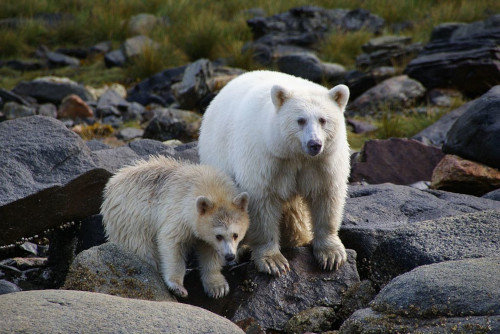SUBSCRIBE TO THE FREE NEWSLETTER
Covering arts culture from across the Pacific Northwest
Thanks for reading Cascadia Daily and Cascadia Magazine! We’re a scrappy new online publication dedicated to covering people, places, and ideas from across the Cascadia bioregion. A big part of our mission is to investigate arts and culture, whether it’s publishing original poetry, essays, and fiction — or profiling people doing innovative, creative work in the Pacific Northwest.
That’s why we’ve profiled authors like Portland’s Leni Zumas, and First Nations novelist Eden Robinson. We’ve looked at the unique collaboration between poet Renée Sarojini Saklikar and biologist Mark Winston drawing attention to the plight of endangered bees. And we’ve published a feature on Mighty Tieton, a unique arts incubator space outside of Yakima, Washington that’s preserving the artisan skills such as letterpress printing and mosaic.
Our region is a thriving hub for groundbreaking creative expression, and at Cascadia Magazine we’d like to continue to pay journalists to cover the arts, from Bend, Oregon to Prince George, British Columbia — and many points in between.
If you like the reporting you find at Cascadia Magazine, please take a moment to contribute to our fall fund drive: we’re trying to raise $15,000 so we can continue to publish great writing from across the Pacific Northwest. It’s a tough time for arts journalism in North America, and you can help us buck that trend! Visit our donate page — it only takes a few moments, and you can select any amount you’re comfortable with.
And to the wonderful people who’ve already become supporting readers: many hearty thanks!
Cascadia Magazine original:This Was The River
You can read John Pass’s poem “This Was the River,” set on the banks of the Fraser River near Lillooet, British Columbia, now online at Cascadia Magazine, accompanied by the poet’s own photos.
“…swirled/
palette of eddy-boil, gravels and boulders, sure-/
footed map of the island adjacent picked/
up in a seed-potato of pebble!”
Read the full poem online here.
Will Washington join BC in enacting carbon fee?
Washington state voters will weigh in on initiative 1631 by November, which would enact a fee on carbon to reduce pollution and generate funds for clean energy projects. Sightline Institute looks at the pollution-reduction benefits. Meanwhile, an analysis at Vancouver Observer finds that British Columbia, which has a carbon fee, isn’t meeting its greenhouse emission targets, thanks to new fossil fuel projects.
Election news from across Cascadia
Elections are approaching and Vancouver municipal elections could bring a profound change in the region. Vancouver Sun has video of a debate between the seven mayoral candidates, while the Tyee profiles the COPE candidates (including Jean Swanson, pictured left) who want to replicate successes of democratic socialist candidates in Seattle. Food industries are pumping big bucks into Washington’s ballot measure that would repeal a tax on soda pop while supermarket chains are spending millions hoping for a change to Oregon’s constitution that would exempt groceries from taxes.
Surveys show a measure in Alaska that would fund and increase protection for salmon habitat is leading in polls, although many state politicians have come out against it. CBC reports that elections in Tofino and other cities on Vancouver Island are focused on housing affordability. And while the Oregon governor’s race is getting a lot of attention, Idaho will choose a new governor: either Republican Brad Little, or Democrat Paulette Jordan–who, if elected would become the first Native American governor in the US.
Substandard medical care at Tacoma ICE detention center
Writing for Seattle Weekly, Melissa Hellmann uncovers numerous instances of sub-standard medical care at a detention center run by US immigration authorities in Tacoma — including reports of untreated tumors and isolation of detainees with mental health issues.
Abuse and costs on the rise in Oregon dementia care
The Oregonian has a detailed investigation into “memory care centers” that provide assistance for patients with dementia — and finds that even as costs are skyrocketing, instance of abuse in the system is rising at disturbing rates.
A visit to British Columbia’s “Kingdom of Bears”
Jude Isabella, reporting for Hakai magazine, journeys to the Wuikinuxv territory within northern British Columbia’s Great Bear Rainforest. The result is a fantastic, detailed story of the intricate relationship between First Nations people and bears. “The bond between humans and bears has depth and breadth, predating any of the ancient religions known today, perhaps for one very good reason: when our ancestors left their homeland and spread to higher latitudes some 60,000 years ago, the most humanlike nonhuman beings they encountered were bears.”
Washington Book Awards announced
The 2018 Washington Book Awards were presented this weekend, and the winners included Laurie Frankel for fiction, Claudia Rowe for memoir, Lyanda Lynn Haupt for nonfiction, and Lena Khalaf Tuffaha for poetry. An anthology of poetry from across the state, WA 129, edited by former poet laureate Tod Marshall, was given its own special award created for the project. Congratulations to all the winners!
Poetry by Rena Priest
Over at Poetry Northwest, you can read Rena Priest’s poem “Real to Reel” online. Priest is of Lummi Nation descent, and her new collection of poetry, Sublime Subliminal, will be released by Floating Bridge Press in an event at Seattle’s Elliott Bay Books at 3 pm Sunday, Oct. 21.
“The secret army is a memory farm,
a nostalgia-scented chemical whisper
silvering up the atmosphere…”
Read the full poem here.
That’s today’s selection of news, environmental reporting, arts and culture from across the Cascadia bioregion. Have a lovely evening. –Andrew Engelson
Photo credit: spirit bears by Maximilian Helm CC BY-SA 2.

